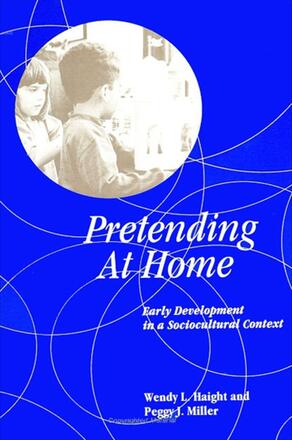
Pretending at Home
Early Development in a Sociocultural Context
Alternative formats available from:
Wendy L. Haight is Assistant Professor at the University of Utah. Peggy J. Miller is Associate Professor at the University of Illinois, Urbana-Champaign.
Reviews
"Pretending at Home provides a close look at how young, middle-class, Euroamerican children and their mothers engage in pretend play. Haight and Miller argue that pretend play is, from its origins, a social, not a solitary, activity. The rich analysis of the play episodes of nine children and their caregivers over the first few years of their lives together yields a very solid portrayal of the development of pretend play. The volume contributes to a growing interest in understanding how children's development occurs through interactions with their companions in everyday sociocultural activities. " — Barbara Rogoff, The University of California, Santa Cruz
"Haight and Miller's Pretending at Home is a landmark volume. It directly challenges long-standing notions about the solitary nature of pretend play by clearly locating it in a social and cultural framework. The combination of intensive, quantitative observations and insightful, qualitative analysis is impressive. " — Ross D. Parke, Director, Center for Family Studies, University of California, Riverside
"This extensive, long-term, naturalistic study provides solid data on the ontogeny of pretend play. It shows, for the first time, how pretending emerges as a social activity in the course of everyday life. These findings will be invaluable to students of normal development in our mainstream cultures as well as offering a base for comparison with different cultural traditions or with environments in which the growth of pretending is discouraged or disrupted. " — Catherine Garvey, University of Maine, Orono